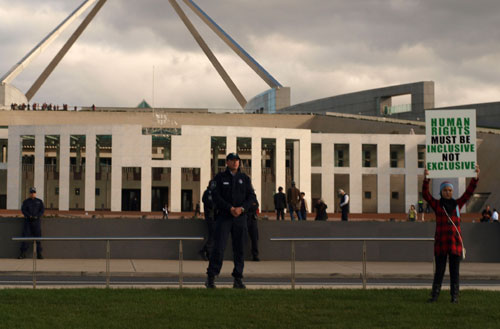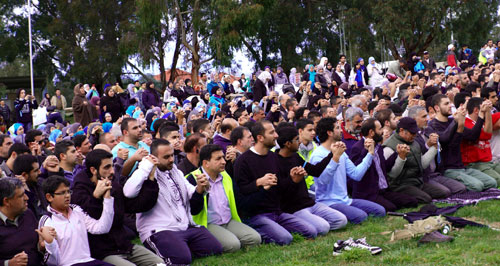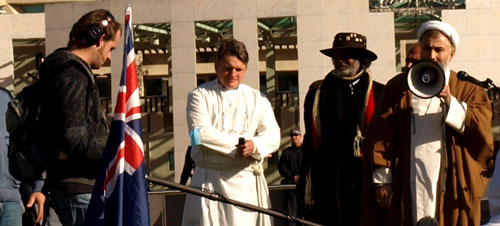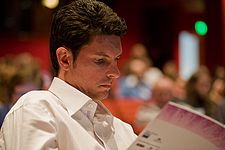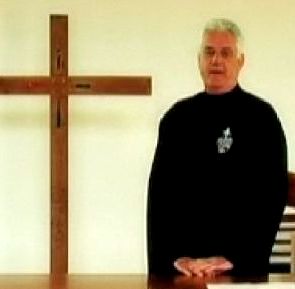The following is an open letter from the supporters of Sheikh Mansour Leghaei to Australian Prime Minister Kevin Rudd.
The Hon. Kevin Rudd, MP
Prime Minister of Australia
Australian Parliament
Canberra, Australian Capital Territory, 2600
June 3, 2010
Dear Prime Minister
Re: Request to prevent the deportation of Sheikh Mansour Leghaei in accordance with the communication of the United Nations Human Rights Committee of 21 April, 2010.
We are supporters of Sheikh Mansour Leghaei, a moderate Iranian cleric who leads the 1500-member Imam Husain Islamic Centre in Earlwood and is the elected head of the local Interfaith Committee.
As you will be aware, Dr Leghaei and his family have lived peacefully in Australia for 16 years. His application for Permanent Residency in Australia has been denied due to two Adverse Security Assessments issued by ASIO in 1997 and 2004.
A leading proponent of interfaith dialogue and religious tolerance in Sydney, Dr Leghaei strenuously denies he has ever been a threat to Australia’s national security.
Contrary to the right to a fair hearing enshrined in the International Covenant on Civil and Political Rights (ICCPR), to which Australia is a signatory, Dr Leghaei has never been informed of the nature of the allegations against him, either by ASIO or in any of the court proceedings he has brought to challenge ASIO’s assertion. In one of these hearings, a judge of the Federal Court of Australia observed that Dr Leghaei’s right to procedural fairness had been reduced to ‘nothingness’.
Australia’s failure to guarantee a fair trial is at odds with much of the liberal democratic world: in Britain and Europe, for example, human rights law requires that a person always be told the substance of the allegations. The denial of a fair hearing is also foreign to our ancient common law tradition, which requires that a person can challenge the evidence against them in an adversarial process.
Where a person is unable to see or test the evidence, it cannot be determined whether they are actually a risk to national security or not. Deporting Dr Leghaei in such circumstances would be internationally unlawful.
On April 21, the United Nations Human Rights Committee issued a request, under rule 92 of its rules of procedure, that the Australian Government not deport Dr Leghaei and his accompanying dependents to Iran while their case is under consideration by the committee.
However in contravention of this request, the Minister for Immigration, Senator Chris Evans, announced on May 17 that Dr Leghaei would not be granted a visa and that he was expected to make preparations to leave the country by June 28.
This breach of Dr Leghaei’s human rights has provoked concern among the international human rights community. Support for his case has now been received from, amongst others: Bishop Desmond Tutu of Cape Town; Bishop Riah Abu El-Assal, Bishop of Israel, Palestine, Jordan, Syria and Lebanon; Máiread Corrigan-Maguire, Nobel Peace Prize laureate; Dr Chandra Muzaffar, Malaysian political scientist; Professor Hans Köchler, President of the International Progress Organization; Dr Norman Finkelstein, American political scientist, and Bishop George Browning, retired Bishop of Canberra and Goulburn.
Dr Leghaei and his family have also received thousands of letters of support from members of the Anglican, Catholic, Indigenous and Muslim communities. His removal from Australia will result in the closure of the Centre and deprive 1500 Muslims of a leadership which preaches tolerance and peace.
Today more than 1,000 concerned Australians from different community backgrounds have travelled to Canberra to deliver this letter to you.
We applaud your Government’s stated commitment to human rights and global governance. At a time when it is more important than ever to build bridges between people of different faiths, we call on you to ensure that the principles of human rights and the right to a fair trial are upheld in this individual case.
Therefore we respectfully request that you provide an assurance to Dr Leghaei that he will not be removed from Australia until the UN Human Rights Committee has finally determined his case on its merits.
